Related Research Articles

The Holocene extinction, or Anthropocene extinction, is the ongoing extinction event caused by humans during the Holocene epoch. These extinctions span numerous families of plants and animals, including mammals, birds, reptiles, amphibians, fish, and invertebrates, and affecting not just terrestrial species but also large sectors of marine life. With widespread degradation of biodiversity hotspots, such as coral reefs and rainforests, as well as other areas, the vast majority of these extinctions are thought to be undocumented, as the species are undiscovered at the time of their extinction, which goes unrecorded. The current rate of extinction of species is estimated at 100 to 1,000 times higher than natural background extinction rates and is increasing. During the past 100–200 years, biodiversity loss and species extinction have accelerated, to the point that most conservation biologists now believe that human activity has either produced a period of mass extinction, or is on the cusp of doing so. As such, after the "Big Five" mass extinctions, the Holocene extinction event has also been referred to as the sixth mass extinction or sixth extinction; given the recent recognition of the Capitanian mass extinction, the term seventh mass extinction has also been proposed for the Holocene extinction event.
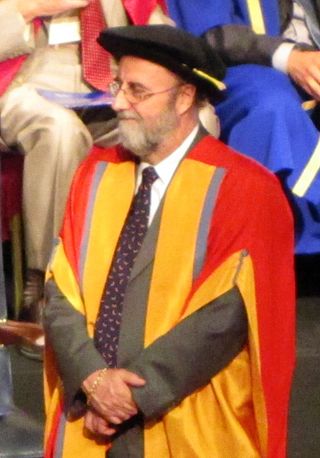
Sir Robert Tony Watson CMG FRS is a British chemist who has worked on atmospheric science issues including ozone depletion, global warming and paleoclimatology since the 1980s. Most recently, he is lead author of the February 2021 U.N. report Making Peace with Nature.

The Anthropocene ( ) is a proposed geological epoch dating from the commencement of significant human impact on Earth until now. It affects Earth's geology, landscape, limnology, ecosystems and climate. The effects of human activities on Earth can be seen for example in biodiversity loss and climate change. Various start dates for the Anthropocene have been proposed, ranging from the beginning of the Neolithic Revolution, to as recently as the 1960s as a starting date.

Sir David Anthony King is a South African-born British chemist, academic, and head of the Climate Crisis Advisory Group.

Sir John Theodore Houghton was a Welsh atmospheric physicist who was the co-chair of the Intergovernmental Panel on Climate Change's (IPCC) scientific assessment working group which shared the Nobel Peace Prize in 2007 with Al Gore. He was the lead editor of first three IPCC reports. He was professor in atmospheric physics at the University of Oxford, former Director General at the Met Office and founder of the Hadley Centre.

Nicholas Herbert Stern, Baron Stern of Brentford, is a British economist, banker, and academic. He is the IG Patel Professor of Economics and Government and Chair of the Grantham Research Institute on Climate Change and the Environment at the London School of Economics (LSE), and 2010 Professor of Collège de France. He was President of the British Academy from 2013 to 2017, and was elected Fellow of the Royal Society in 2014.

Population Matters, formerly known as the Optimum Population Trust, is a UK-based charity that addresses population size and its effects on environmental sustainability. It considers population growth as a major contributor to environmental degradation, biodiversity loss, resource depletion and climate change. The group promotes ethical, choice-based solutions through lobbying, campaigning and awareness-raising.
Susan Fiona Dorinthea Michie is a British academic, clinical psychologist, and professor of health psychology, director of The Centre for Behaviour Change and head of The Health Psychology Research Group, all at University College London. She is also an advisor to the British Government via the SAGE advisory group on matters concerning behavioural compliance with government regulations during the COVID-19 pandemic. In 2022, she was appointed Chair of the World Health Organisation’s (WHO) Technical Advisory Group on Behavioural Insights and Sciences for Health.

Climate crisis is a term describing global warming and climate change, and their impacts. This term and the term climate emergency have been used to describe the threat of global warming to humanity and the planet, and to urge aggressive climate change mitigation and "transformational" adaptation. In the scientific journal BioScience, a January 2020 article, endorsed by over 11,000 scientists worldwide, stated that "the climate crisis has arrived" and that an "immense increase of scale in endeavors to conserve our biosphere is needed to avoid untold suffering due to the climate crisis."

Christopher Graham Rapley is a British scientist and scientific administrator. He is Professor of Climate Science at University College London, a member of the Academia Europaea, Chair of the European Science Foundation's European Space Sciences Committee, Patron of the Surrey Climate Commission, a member of the scientific advisory board of Scientists Warning, a member of the UK Clean Growth Fund Advisory Board, and a member of the UK Parliamentary and Scientific Committee. His previous posts include Director of the Science Museum, London, Director of the British Antarctic Survey, Chairman of the London Climate Change Partnership, President of the Scientific Committee on Antarctic Research, Vice President of the European Science Foundation's European Polar Board, Executive Director of the International Geosphere-Biosphere Programme, and founder and leader of UCL Mullard Space Science Laboratory's (MSSL) Remote Sensing Group.
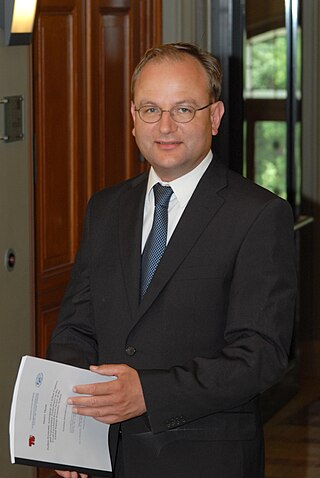
Ottmar Georg Edenhofer is a German economist who is regarded as one of the world's leading experts on climate change policy, environmental and energy policy, and energy economics. His work has been heavily cited. Edenhofer currently holds the professorship of the Economics of Climate Change at the Technical University of Berlin. Together with Earth scientist Johan Rockström, economist Ottmar Edenhofer is scientific director of the Potsdam Institute for Climate Impact Research (PIK), representing the interdisciplinary and solutions-oriented approach of the institute. Furthermore, he is director of the Mercator Research Institute on Global Commons and Climate Change (MCC). From 2008 to 2015 he served as one of the co-chairs of the Intergovernmental Panel on Climate Change (IPCC) Working Group III "Mitigation of Climate Change".

The World Wide Fund for Nature (WWF) is a Swiss-based international non-governmental organization founded in 1961 that works in the field of wilderness preservation and the reduction of human impact on the environment. It was formerly named the World Wildlife Fund, which remains its official name in Canada and the United States. WWF is the world's largest conservation organization, with over five million supporters worldwide, working in more than 100 countries and supporting around 3,000 conservation and environmental projects. They have invested over $1 billion in more than 12,000 conservation initiatives since 1995. WWF is a foundation with 65% of funding from individuals and bequests, 17% from government sources and 8% from corporations in 2020.
The Climatic Research Unit email controversy began in November 2009 with the hacking of a server at the Climatic Research Unit (CRU) at the University of East Anglia (UEA) by an external attacker, copying thousands of emails and computer files to various internet locations several weeks before the Copenhagen Summit on climate change.
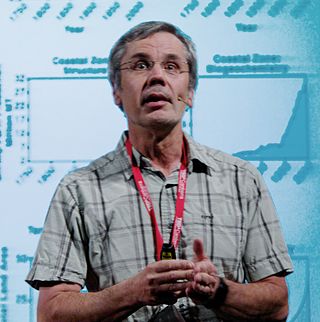
William Lee Steffen was an American-born Australian chemist. He was the executive director of the Australian National University (ANU) Climate Change Institute and a member of the Australian Climate Commission until its dissolution in September 2013. From 1998 to 2004, he was the executive director of the International Geosphere-Biosphere Programme, a coordinating body of national environmental change organisations based in Stockholm. Steffen was one of the founding climate councillors of the Climate Council, with whom he frequently co-authored reports, and spoke in the media on issues relating to climate change and renewable energy.
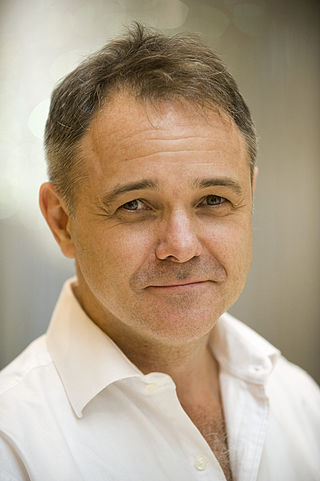
Sir Jeremy James Farrar is a British medical researcher who has served as Chief Scientist at the World Health Organization since 2023. He was previously the director of The Wellcome Trust from 2013 to 2023 and a professor of tropical medicine at the University of Oxford.

The contributions of women in climate change have received increasing attention in the early 21st century. Feedback from women and the issues faced by women have been described as "imperative" by the United Nations and "critical" by the Population Reference Bureau. A report by the World Health Organization concluded that incorporating gender-based analysis would "provide more effective climate change mitigation and adaptation."
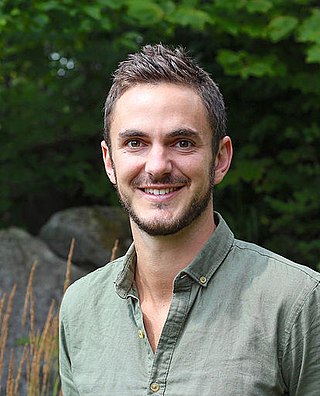
Thomas Ward Crowther is a professor of ecology at ETH Zürich and co-chair of the advisory board for the United Nations Decade on Ecosystem Restoration. At ETH Zürich, he started Crowther Lab, an interdisciplinary group of scientists exploring the role of biodiversity in regulating the Earth's climate. Crowther is the founder of Restor, an online platform that supports thousands of community-led restoration projects around the world. In 2021, the World Economic Forum named Crowther a Young Global Leader.

Extinction Rebellion is a UK-founded global environmental movement, with the stated aim of using nonviolent civil disobedience to compel government action to avoid tipping points in the climate system, biodiversity loss, and the risk of social and ecological collapse. Extinction Rebellion was established in Stroud in May 2018 by Gail Bradbrook, Simon Bramwell, Roger Hallam, Stuart Basden, along with six other co-founders from the campaign group Rising Up!
The Scientific Advisory Group for Emergencies (SAGE) is a British Government body that advises central government in emergencies. It is usually chaired by the United Kingdom's Chief Scientific Adviser. Specialists from academia and industry, along with experts from within government, make up the participation, which will vary depending on the emergency. SAGE gained public prominence for its role in the 2020 COVID-19 pandemic in the United Kingdom.

The Independent Scientific Advisory Group for Emergencies, better known as Independent SAGE, is a group of scientists, unaffiliated to government, that publishes advice aimed toward the UK government regarding the COVID-19 pandemic. Its name is based on SAGE, the name of the government's official Scientific Advisory Group for Emergencies.
References
- ↑ "World-leading scientists launch international climate crisis advisory group". The Independent. 22 June 2021. Retrieved 6 July 2021.
- ↑ "Head of Independent Sage to launch international climate change group". the Guardian. 20 June 2021. Retrieved 6 July 2021.
- ↑ "Nowhere is safe, say scientists as extreme heat causes chaos in US and Canada". the Guardian. 1 July 2021. Retrieved 6 July 2021.
- ↑ "Head of Independent Sage to launch international climate change group". the Guardian. 20 June 2021. Retrieved 9 September 2021.
- ↑ CCAG (June 2021). "The Global Climate Crisis and the Action Needed" (PDF). ccag.earth. Archived (PDF) from the original on 24 June 2021.
- ↑ "FAQs". Climate Crisis Advisory Group. Retrieved 19 July 2021.
- 1 2 3 4 5 6 7 8 9 10 11 12 13 14 15 16 17 "Reducing carbon emissions not enough, expert warns". ANU. 24 June 2021. Retrieved 19 July 2021.
- 1 2 3 4 5 6 7 8 9 10 11 12 13 14 15 16 17 18 "Who are we?". Climate Crisis Advisory Group. Retrieved 19 July 2021.